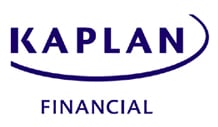Want to work in L&D? We’ve got this…
Whether you’re looking to develop your career in Learning & Development or you want to start afresh, there are a number of great opportunities on offer. Not sure what it’s all about? We spoke to the experts at AVADO, one of the UK’s largest providers of professional qualifications, to find out.
Here’s everything you need to know about a career in Learning & Development (along with a few tips on how to get started):
What is L&D?
Learning and development (L&D) is a field of work that focuses on providing and managing job-related training to employees and individuals.
Those working in this field will usually be responsible for developing a workforce’s capabilities and practical skills – with roles including everything from the design and management of learning programmes, to the practical delivery of training.
If you’re a great communicator who is interested in a career helping individuals develop their skills at work, L&D could be the perfect fit for you.
What industry could I work in?
Whilst L&D professionals are most common within the HR and sales industries, roles can be found almost anywhere. After all, a knowledgeable workforce is the key to the smooth running of every organisation.
Most commonly, they work at:
- Commercial firms
- Educational institutions
- Health service
- Law and financial firms
- Retail companies
- Central and local government
- Training consultancies
- Manufacturing organisations
- Technology training providers
What L&D jobs are available?
This field offers a wide range of opportunities, both at junior and senior level – meaning it’s a great career path to pursue for people at all stages in their career.
Here are just a few of the most common L&D roles:
- L&D Advisor
- L&D Manager
- Head of L&D
- Training Project Administrator
- Sales Trainer
- Apprenticeship Coordinator
- Talent Acquisition Consultant
What are L&D employers looking for?
Skills
Here are a few of the key skills L&D employers look for:
- Interpersonal skills
- Motivational skills
- Problem solving skills
- An ability to advise and inform others clearly
- Initiative and creativity
- Excellent time management
- Organisational skills
Experience
The level of experience you’ll need will depend on the specific role you’re applying for – but anything that demonstrates your leadership and motivational skills is likely to boost your application.
Previous experience in related fields (e.g. admin and HR) is also valuable to employers.
If you’re lacking in practical work experience, don’t panic. Taking part in voluntary work, summer placements, or (if you’re still studying) joining university clubs, teams, or societies is a great way to develop your skills in team work and organisation, which are also vital in L&D roles.
Qualifications
You don’t necessarily need a degree to start a career in L&D, as professional qualifications and experience are more highly sought after by employers.
CIPD courses are particularly beneficial, as they’re internationally recognised and allow you to prove your professional credibility; through the learning of core principles, skills, and collaborative techniques.
And, if you’re new to L&D and want to study flexibly whilst boosting your earning potential; there’s no better choice than the CIPD courses with AVADO.
Why study with AVADO?
AVADO are the largest training provider for professional qualifications in the UK with an active community of over 20,000 students studying to secure their next promotion, a higher salary or to take their career in a new direction.
They are CIPD Enterprises’ only official online learning partner for qualifications in L&D and HR, enabling you to gain access to exclusive CIPD experts and content you won’t find anywhere else.
Not only do they offer over 26 years’ worth of experience in online learning, they also have a 96% pass rate* on their CIPD courses.
Other benefits of studying with AVADO include:
- Interactive classes, where you can learn online with other students
- Expert tutors handpicked to support you
- An online learning platform built around you
- Bite-sized content designed to work on mobile
- Award winning provider you can trust
Want to learn more about how a qualification could help your career? Enquire now.
*L&D pass rates up to 96% based on submitted assignments from students studying our CIPD Level 5 Intermediate Certificate and Diploma in Learning & Development, May to October 2016 cohorts.















 Who is Beca?
Who is Beca?



